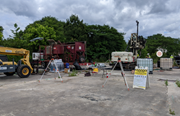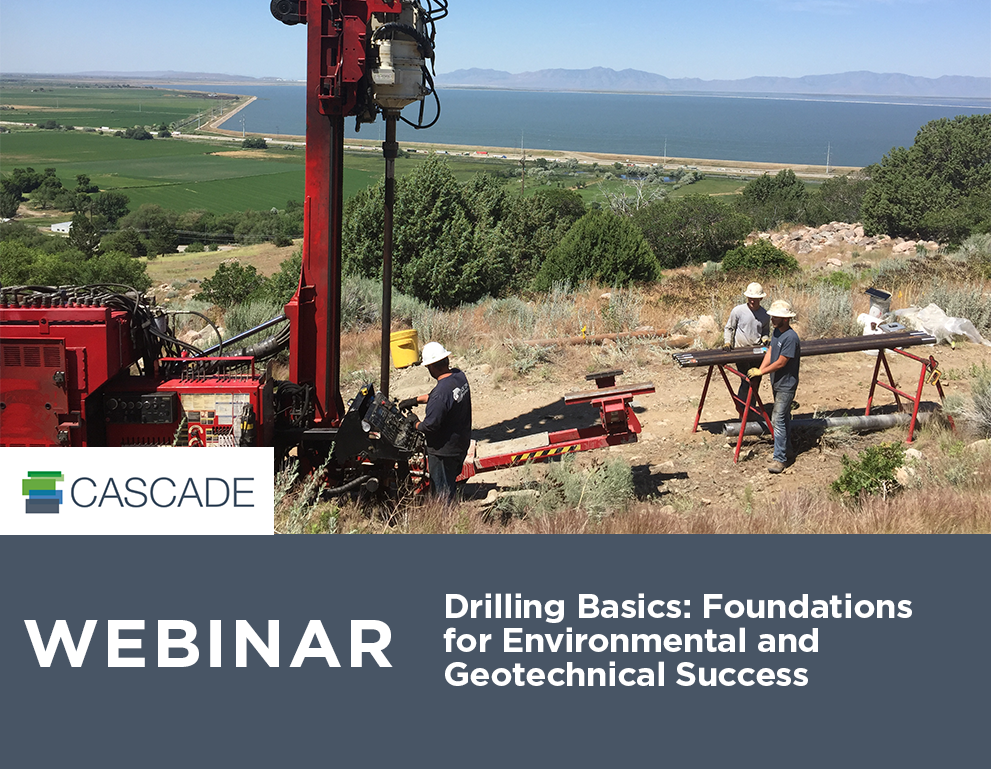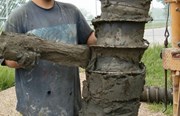4 Things to Look for in a Mentor: Advice for Women in Environmental Services
By: Sue BruningKiller whales know a thing or two about the value of a good mentor.
Scientists have discovered that after menopause, the female whales take on a new survival guide role as pod leaders. They swim at the front of the group and direct the pod’s movement in search of food. Their decades of hunting experience is critical to the survival of the pod. They teach the younger, inexperienced whales how to hunt and where to find the salmon that sustain their diet when this primary food source is scarce.
Women in the environmental services field may not be searching for a scarce food source, but they can still benefit from the mentorship of someone more experienced in dealing with the unique challenges they face. Just like the killer whale moms, seasoned women professionals can play the critical role of mentor.
If you’ve been interested in finding someone who could provide that insight but don’t know where to start, this blog post is for you. We’ll focus on four key things to look for in a mentor.
Want to get a head start on career advice? Watch our on-demand webinar, Career Challenges for Women in Environmental Services: A Panel Discussion. Three women from across the industry discussing the challenges they’ve faced during their careers, how they tackled obstacles, and answered questions from the audience during the Q&A.
#1: SIMILAR BACKGROUND
A mentor who shares a similar background can better tailor advice applicable to your situation. Common experiences also facilitate a strong personal connection between mentor and mentee. Maybe you went to the same school, live in the same community, have similar family situation, or have worked for the same company.
I am a mom of three boys and provide the sole income for our family. My husband is an amazing stay-at-home dad and runs our household. Our situation is a bit non-traditional and I was surprised when I was connected with a mentor who had experienced all of that. Sharing that work/family dynamic sparked an immediate connection between us. We were able to focus on strategies for career stability, self-care, and motherhood.
#2: SAME INDUSTRY
The environmental services field often requires a unique blend of science and business acumen. Although a mentor who works in another industry may be able to help you in more general ways, one with tenure in the same field can help you assess and leverage your own specific skills and aptitudes for growth.
Oftentimes, the growth and opportunity appear in ways you couldn’t imagine. After earning my BS in Environmental Health, I couldn’t wait to get into the field and apply the science I spent four years learning. It didn’t take long—18 months, to be exact—to figure out I needed some business smarts, too. A close colleague encouraged me to head back to school for my MBA, and connected me with other women in the company who helped me explore potential career paths and leadership opportunities that this degree could help facilitate.
#3: DESIRED CAREER DESTINATION
Not everyone knows where they want their professional path to take them. But if you have even a vague notion of what you want from your career in the next five, ten, or dare to say twenty years, a mentor who is standing in the position now can provide invaluable insight. Look for a mentor who has followed a career path like the one you are imagining today. They can provide a glimpse into the demands, joys, and challenges of the role. Maybe the corporate office and distinguished title isn’t what you expected. On the other hand, it could be the thrill and opportunity you desire.
Back in my Girl Scout days, my dad set me up with a day in a manufacturing facility for Take Your Daughter to Work Day. I was amazed to see the variety of roles: health & safety, environmental compliance, quality control, human resources, accounting, and skilled labor. Even at that young age, I immediately made a connection to the environmental aspect. The experience stuck with me. Years later, my Environmental Health degree focused on industrial hygiene, environmental regulations, and the science behind it all—in no small part because I was given the opportunity to envision what that work would be like.
#4: QUALITIES YOU ADMIRE
A mentor should be someone you admire and are comfortable emulating. You might look for attributes like tenacity, empathy, or confidence. Or maybe someone who is well-spoken and a master of the art of conversation. For women, a mentor is often someone who can help you navigate through work-life balance, the unique demands of motherhood, or breaking through gender barriers. Your mentor can help you strengthen the qualities you hold most dear.
Survival of the Friendliest?
Darwin wasn’t wrong in describing survival of the fittest. But ‘fit’ isn’t necessary brute strength or cruel aggression. Rather, nature has proven that friendly thrives. Sharks and pilot fish, hermit crabs and sea anemones, crocodiles and plover flies—these pairs all enjoy symbiotic relationships that help each species thrive.
If you have enjoyed the benefits of working with a mentor during your career, pay it forward. Sharing your experiences to help a woman advance her career, explore new options, or simply grow her professional network can be equally rewarding.
And if you’re just starting out in your career and receiving mentorship? Commit to sharing what you learn, and making sure the women who come after you also have what they need to succeed in our industry.
Just like killer whale moms leverage their experience for the future of the pod, a mentor can do the same for a young professional hungry for growth.
If you’re ready for a mini dose of mentorship, watch our webinar, Career Challenges for Women in Environmental Services: A Panel Discussion.
ABOUT THE AUTHOR

Sue Bruning
VP Marketing & Communications
[email protected]
Sue Bruning is the Vice President of Marketing & Communications at Cascade and serves as Chair of Cascade’s Sustainability Council. She earned a bachelor’s degree in Environmental Health, a master’s in Business Administration, and is certified in the Global Reporting Initiative’s Sustainability Reporting Process.
Sue has been in the environmental services industry for more than 20 years, and she recognizes that there’s a lot of messy marketing and unhelpful content floating around. In her role as VP of Marketing & Communications, she works to provide educational and actionable material for environmental professionals. Sue is also dedicated to driving engagement and satisfaction for employees and clients alike.
Because of her background in sustainability, Cascade recruited Sue in 2014 to establish the company’s sustainability program. The Cascade Sustainability Council was founded to manage company-wide efforts, and Sue was appointed Chair. The Council is tasked with setting goals, monitoring performance, and reporting annually about the company’s efforts regarding environmental stewardship, social responsibility, and economic impact. The reports allow clients to evaluate Cascade’s suitability as a contractor and provide options for resource conservation, environmental remediation, and responsible waste management.
If you would like to connect with Sue about her experience with marketing, communications, strategic planning or sustainability, you can find her on LinkedIn.












